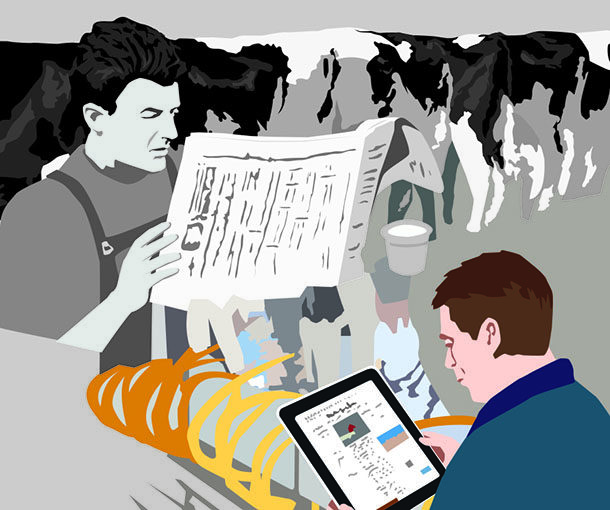A symptom of breaking down and finally buying a functionable smartphone is getting deluged with memes from friends.
One meme came across my screen of a man eagerly staring at a digital clock that showed 11:59 p.m. on Dec. 31, 2020. The next shot was him drop-jawed after the clock turned to Dec. 31, 2020, 11:60 p.m.
Admittedly, it took a second for me to get it. (Maybe it did for you, too.) Then I said out loud, “Oh, yes. Everyone can’t wait for this year to end, and it feels like it’s lasting forever.” You don’t have to look very far to find someone complaining about how bad 2020 was and designating it the worst year ever. As I write, Ireland (the country I live in at the moment) has returned to a second lockdown, and the U.S. is experiencing a third wave in COVID-19 cases that is already breaking new daily highs.
Most people are living an abbreviated existence without comforts or pleasures once considered common, and some are in genuinely difficult circumstances. There’s an additional echo of truth in the meme, whether intentional or not, in that the problems of 2020 are going to exist long after we turn the calendar in January.
At the start of the pandemic, it was tempting to wax philosophical. Many people talked about reorganizing their priorities and the small things they had previously taken for granted, while television programs spoke of looking out for each other’s mental health and striving for a greater sense of humanity.
That was, of course, when we were all under the impression the virus would only last a few months – the boldest among us suggesting that it could go into autumn. Now, nine months later and with the knowledge that it will be a long time before we can achieve something close to normal again, I have the feeling most of us are simply numb. Still, because we’re nearing the end of 2020 – at least in date – I’m giving in to the temptation to proffer that when we look back, there will be a few lessons to be learned from all of this.
If anything, I believe the coronavirus pandemic has helped make it clear: We are humans before we are citizens. Sometimes we are guilty of forgetting there are other places outside of where we live – especially those of us from larger nations. Growing up, I admit to unconsciously thinking other countries were too far away to consider much and the people in them were too “foreign” to seem real.
One thing about the virus, however, is: It doesn’t care if you are American, Italian or Indonesian. Instead, the human race is in this thing together because there is nowhere and no one that it doesn’t affect. Thinking globally has been commonplace in economics for decades. So, too, must we think of ourselves as one group of people who, for however our looks and languages may differ, all share the experience of being human. In the end, nationalism is limiting and often fickle. Hopefully, this pandemic has encouraged all of us to look over our borders and see other people as equal individuals, not as “others.”
I would also suggest there’s another lesson to be learned from the pandemic, and it came with a heavy price. The three countries that have had some of the highest rates of COVID-19 cases and deaths per population – namely the U.S., Brazil and the United Kingdom – politicized the virus. In each instance, their leaders (respectively, Trump, Bolsonaro and Johnson) considered the virus a threat to maintaining power and chose to purposely downplay its severity. They not only refused timely lockdown measures but flouted simple precautions like wearing masks or restricting movement. Thousands of the deaths that occurred in each of these countries could have been prevented by enacting the same measures as in other nations and are included in the ultimate costs of these leaders’ re-election campaigns.
Although 2020 took us by surprise, the coronavirus pandemic is not the only global challenge facing humanity today. Climate change has already altered life on the planet, and the damage being done is now nearly irreversible. Although the scientific evidence is irrefutable, it has become a phenomenon that has also become politicized in some places (including the three countries above). Politicians, seeking career gains, have attempted to disregard the consequences of global warming and the work that must be done to counteract it. Instead, the coronavirus should have taught us that we cannot allow these challenges to become part of someone’s campaign or to be recast as any way political. There is simply too much at stake.
The year 2020 is going to linger well on into 2021 and then stay in our personal and collective memories for a long time after. Unfortunately, right now it’s still about surviving and will be for a while. However, whenever we do eventually get a little respite, we’ll have the chance to pick ourselves up again and dust ourselves off. When that happens, perhaps the best thing we can do for ourselves is to find something to gain from the experience. In the end, as clichéd and overused as the phrase is, we’ll have the chance to come out stronger from all of this.






